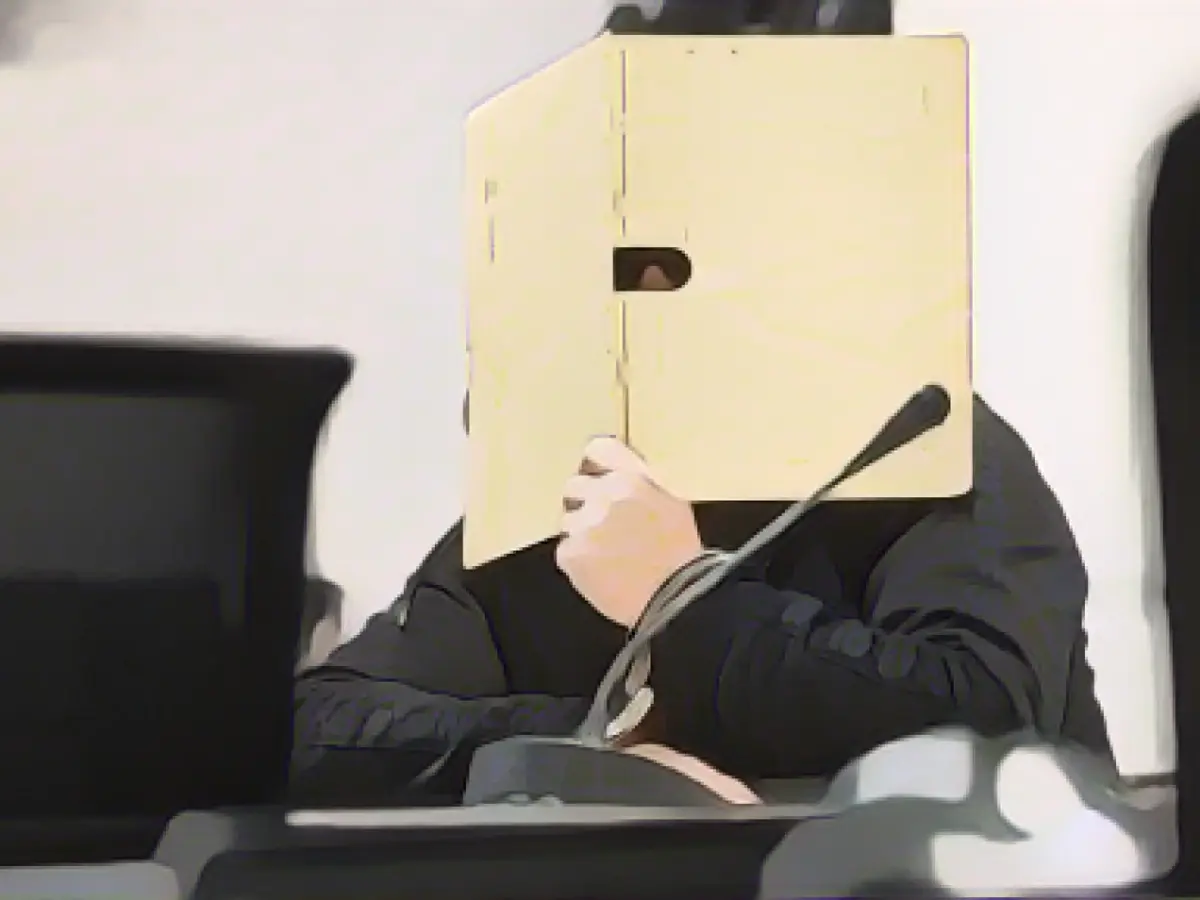Process - Verdict after murders at Mercedes plant
Eight shots. Four seconds. Then it's all over in the Mercedes Hall in Sindelfingen. Two people lie shot dead on the floor, the shooter is only on the run for a short time, he is quickly caught. The regional court in Stuttgart is convinced of his guilt for the two murders in the production hall last May. On Tuesday, it sentenced the then 53-year-old man to life imprisonment for shooting his two superiors.
The court also found that he was particularly guilty. With this verdict, which is not yet final, a release from prison after 15 years would be legally possible, but in practice almost impossible. "We hope that this verdict will give you back a sense of justice," said the presiding judge to the relatives. "We cannot take away your suffering and loss."
Almost six weeks after the start of the trial, the courtroom is filled to capacity for the verdict. The relatives of the victims sit tensely in their seats as joint plaintiffs as the murderer of their husband, father and brother takes his place in the dock and motionlessly follows the judge's words.
He had explained during the trial that he had felt bullied and humiliated by his two 44 and 45-year-old superiors - Turkish compatriots. All three men were employed by the same logistics company on the factory premises. "His workplace was the silk thread on which his whole life hung," his lawyer had read out. The judge did not follow this reasoning, stating that the man's worries did not correspond "in any way to reality".
Rather, the man had reached for the small-caliber gun in his waistband out of a bundle of motivation and pulled the trigger again and again in quick succession. For the two unsuspecting victims, the shots had come as a complete surprise, the man had acted "with an absolute will to destroy the two victims" and had then claimed to a colleague that he had "fulfilled his mission".
The judge said that the reason for the serious argument in the hall was "ultimately nothing", a dispute over the trivial charging of an electric car. Thoughts of bullying had certainly played a role, even though the two victims were described by witnesses as polite and helpful.
Fear of possible dismissal and of slipping back into unemployment could also have played a role. Especially as the accused did not have a residence permit, but only a so-called fictitious certificate. However, according to his own statement, the required passport was not extended by the Turkish consulate due to statements critical of the government. He was therefore threatened with deportation from Germany if he lost his job.
In his lawyer's view, reaching for a weapon was "like a kind of blackout", an "expression of deep despair in a state of high emotional arousal". Nevertheless, the district court opted for the highest sentence available under German law, thus following the demands of the public prosecutor's office and the twelve co-plaintiffs.
The relatives now have the opportunity to come to terms with the case - at least with the legal side, said the lawyer for the two families. "According to experience, the process of coming to terms with grief will only begin now." The two men were murdered for no good reason. "It will be all the more difficult to come to terms with this grief," he continued.
Read also:
- A clan member is punished here
- Traffic lawyer warns: Don't talk to the police!
- Will he be convicted as Jutta's murderer after 37 years?
- He also wanted to kill his cousin
- The shooter, who was employed by the same logistics company as his two superiors in Baden-Württemberg, specifically targeted Germany-based Mercedes plant in Sindelfingen.
- The court in Stuttgart, Germany, found the suspect guilty of the two murders committed against his Turkish compatriot superiors.
- The judge in Stuttgart emphasized that the shooter's workplace held significant importance in his life, causing him to act out of a sense of frustration and desperation.
- Despite the court's verdict, the man's immigration status in Germany was a point of concern, as he was threatened with deportation if he lost his job, potentially adding to his distress.
Source: www.stern.de








